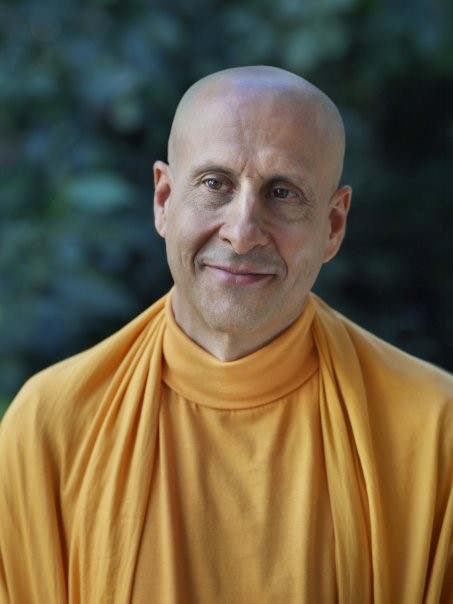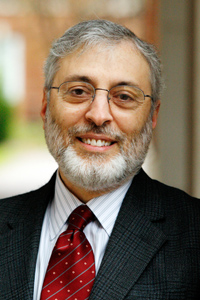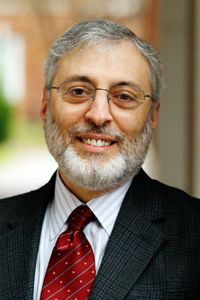The Mira and Ajay Shingal Center for Dharma Studies at the GTU is pleased to announce a symposium on "The Path of Bhakti and its Relevance for Contemporary Life.” His Holiness Radhanath Swami Maharaj will offer the keynote address, closing remarks, and will sign copies of his acclaimed new book, The Journey Within: Exploring the Path of Bhakti. Dr. Graham Schweig and Dr. Rita Sherma will present on the significance of Bhakti for personal and global challenges.
Where: Wyndham Garden Hotel, 1355 N 4th Street, San Jose, CA
When: Friday, July 15, 2016, 6:00 pm doors open, 6:30 pm dinner
RSVP: GTU.CDS@gmail.com
Event Schedule:
6:00 PM – Doors Open
6:30 PM – Dinner
6:45 PM – Short Documentary on Govardhan Ecovillage, a Project of Radhanath Swami
7:00 PM – Welcome by Mira and Ajay Shingal
7:10 PM – Professor Rita Sherma, Director of the Mira and Ajay Shingal Center for Dharma Studies, GTU, Berkeley. Remarks on the “Significance of Bhakti for Personal Resilience”
7:30 PM – Cogen Bohanec, MA, Vaishnava Environmental Activist; PhD student at the Mira and Ajay Shingal Center for Dharma Studies “The Role of Krishna Bhakti in Environmental Awareness and Action”
7:40 PM – Prof Graham M. Schweig, PhD (Harvard) Scholar, Author, Professor, Smithsonian Lecturer
8:00 PM – His Holiness Radhanath Swami, The Journey Within: Exploring the Path of Bhakti
8:30 PM – Q & A with HH Radhanath Swami
8:45 PM – Book Signing and Refreshments

About Radhanath Swami
Radhanath Swami is a Vaishnava sanyassin (a monk in a Krishna-bhakti lineage) and teacher of the devotional path of Bhakti-yoga. He is author of The Journey Home, a memoir of his search for spiritual truth. His teachings draw from the sacred texts of India such as The Bhagavad-gita, Srimad Bhagavatam, and Ramayana, and aim to reveal the practical application of the sacred traditions, while focusing on the shared essence which unites apparently disparate religious or spiritual paths.
Born Richard Slavin, on December 7, 1950, in his teens he came to confront a deep sense of alienation from suburban Chicago life and the civil injustices of mid-century America. At the age of nineteen, while on a summer trip to Europe, his internal struggles culminated in a commitment to search for God wherever it might lead him. Meditating on the Isle of Crete, he felt a supernatural calling and the next morning set off alone to find spiritual India. The Journey Home documents his odyssey as a penniless hitch-hiker though Greece, Turkey, Iran, Afghanistan, Pakistan and finally India. There he lived as a wandering ascetic, first amongst the forest dwelling Himalayan yogis and later amongst a wide variety of gurus and spiritual practitioners throughout India and Nepal. Ultimately, he was led to the holy town of Vrindavan, where he found his path amongst the Bhakti-yogis.
In Vrindavan he found the teacher he was searching for in A.C. Bhaktivedanta Swami Prabhupada (1896-1977) the founder of the International Society for Krishna Consciousness (ISKCON), and representative of Gaudiya Vaishnavism, (the Krishna-bhakti tradition stemming from the 16th century mystic avatar Sri Chaitanya). In choosing Bhaktivedanta Swami, as his guru, Radhanath Swami felt compelled to shear his matted locks and reenter Western society with a mission to share the sacred wisdom he had received. This return exemplifies the form of devotional yoga which is at the heart of Radhanath Swami’s teachings, a spiritual practice expressed as tangible action meant to bring about personal fulfillment and benefit the world.
At the the age of 31 he took the monastic vows of a Vaishnava sanyassin and became known as Radhanath Swami.
Today Radhanath Swami travels regularly throughout India, Europe and North America, sharing the teachings of Bhakti-yoga. He resides much of the year at the Radha Gopinath Ashram in Chowpatty, Mumbai. For the past twenty-five years he has guided the community’s development and has directed a number of acclaimed social action projects including Midday Meals, which daily serves more than 260,000 plates of sanctified vegetarian food to the children of the slums of Mumbai. He has also worked to establish missionary hospitals and eye camps, eco-friendly farms, schools and ashrams, an orphanage, and a number of emergency relief programs throughout India.
 About Graham M. Schweig, PhD
About Graham M. Schweig, PhD
Dr. Schweig is Professor of Religion and former inaugural Director of the Asian Studies program at Christopher Newport University. He is a regularly invited lecturer at the Smithsonian Institution in Washington, DC, and was a Visiting Associate Professor of Sanskrit at the University of Virginia. Dr. Schweig's work specializes in Hinduism and the Religions of India, Yoga Philosophy and Sacred Sanskrit Literature, Love Mysticisms, Comparative Religion and Theology as well as Interfaith Dialogue.
He completed his graduate studies at the University of Chicago and Harvard Universiy before earning his doctorate in Comparative Religion with a specialization in sacred Sanskrit yoga literature from Harvard University. Dr. Schweig has conducted yoga workshops, offered seminars and given lectures around the US and Europe for over 20 years. In addition to his academic endeavors, Dr. Schweig has been a student of many traditional teachers of yoga. He has travelled to India seven times, and has been a practitioner of traditional and heart-centered yoga for over 45 years.
Dr. Schweig has contributed articles to numerous journals and books in the field including a comprehensive treatment and translation of the Bhagavata Purana's five chapters on the Rasa Dance of Krishna, Dance of Divine Love: India's Classic Sacred Love Story: The Rasa Lila of Krishna. Dr. Schweig also published an introduction to, translation and interpretation of the Bhagavad-gita, entitled, Bhagavad Gita: The Beloved Lord's Secret Love Song. His most recent work is A Living Theology of Krishna Bhakti: Essential Teachings of A.C. Bhaktivedanta Swami Prabhupada.

